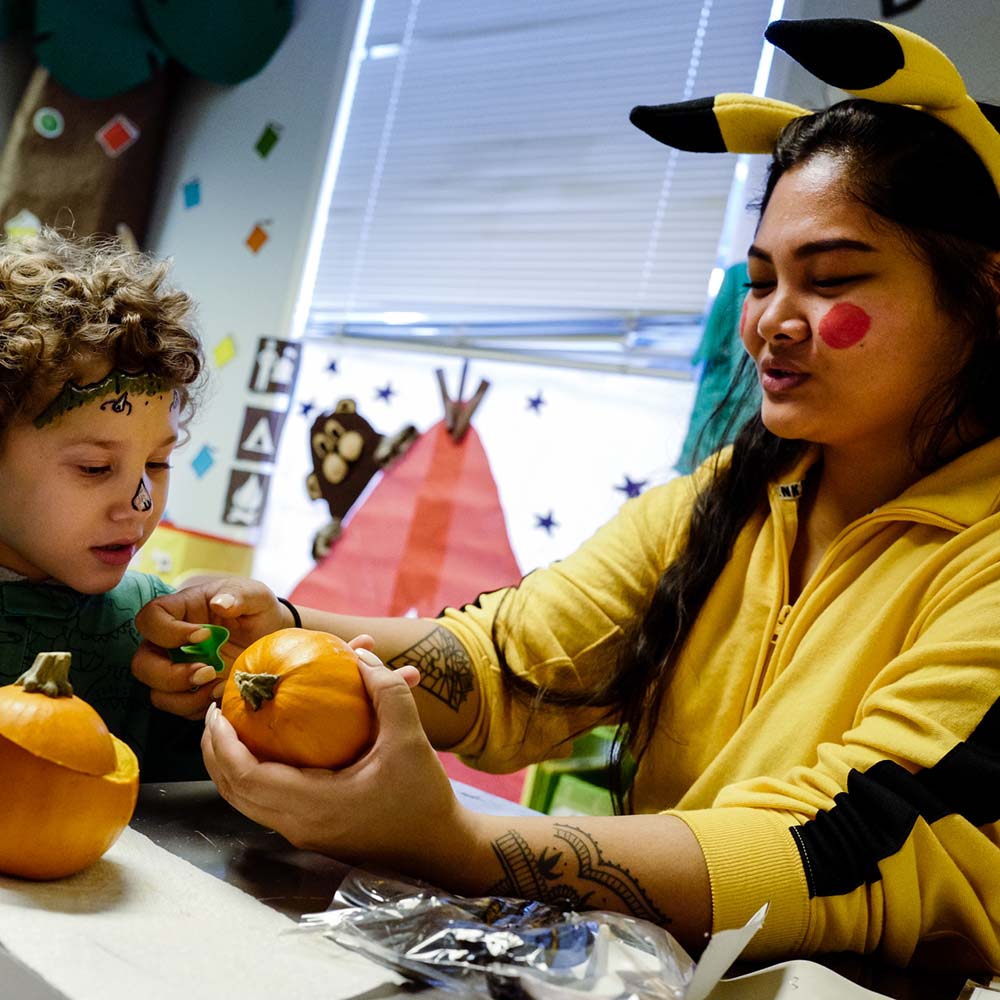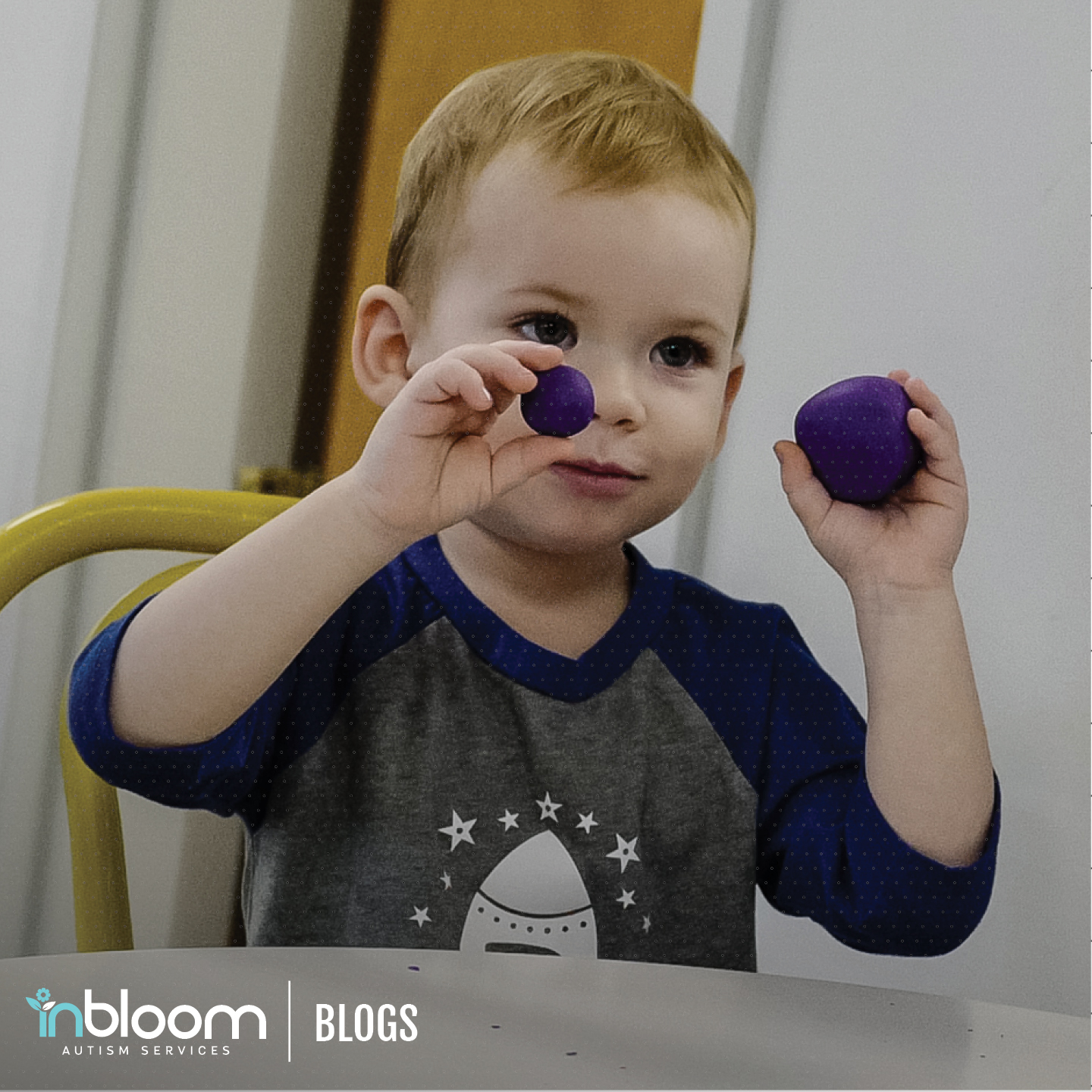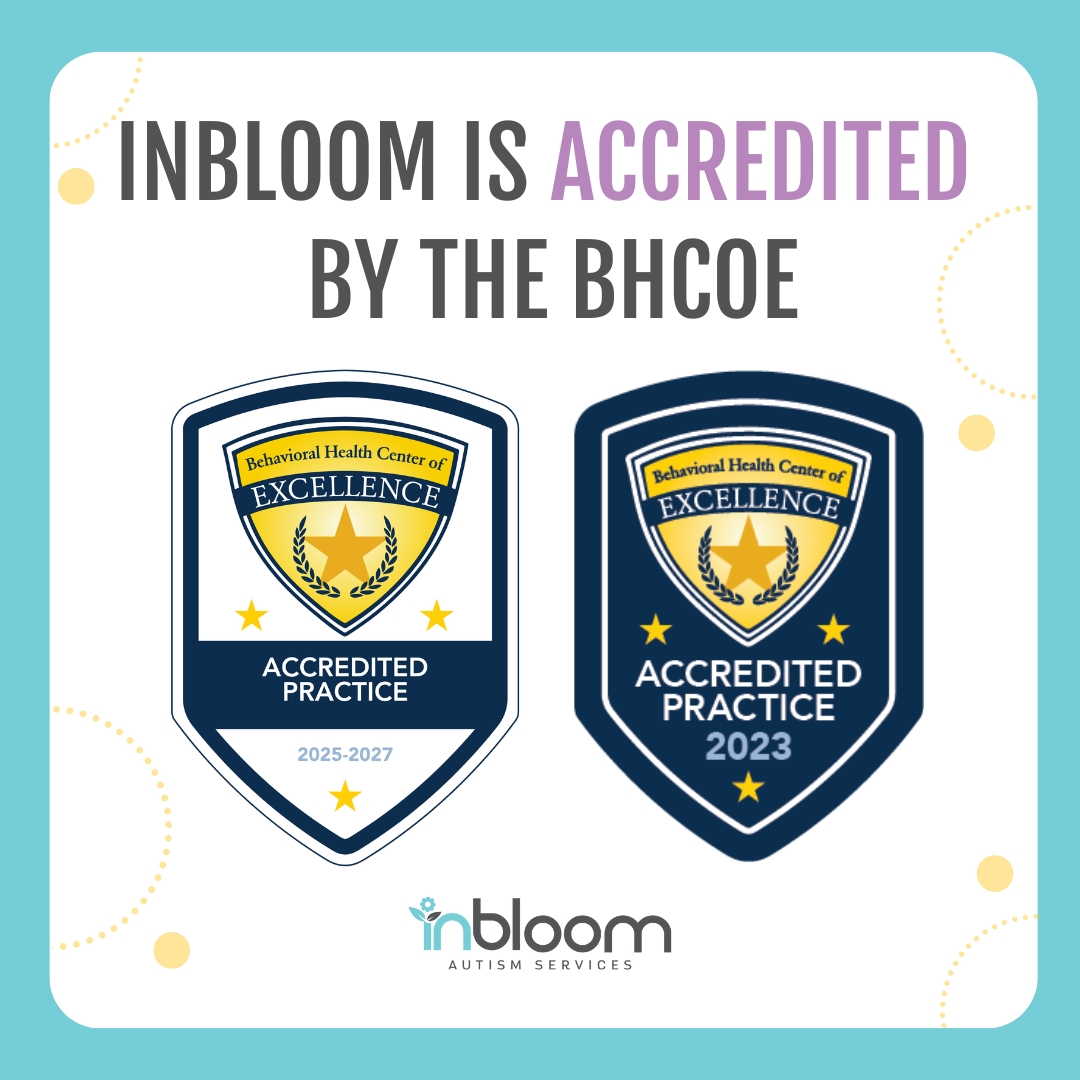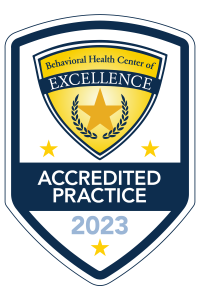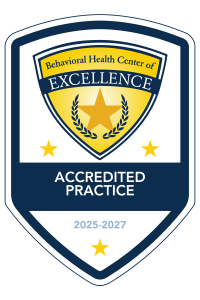Discrete Trial Training in ABA Therapy
Applied Behavior Analysis (ABA) therapy at InBloom Autism Services includes several distinct teaching methods, ensuring your child’s therapy experience is well-rounded and effective. One of these methods is Discrete Trial Training (DTT), also known as Discrete Trial Teaching.
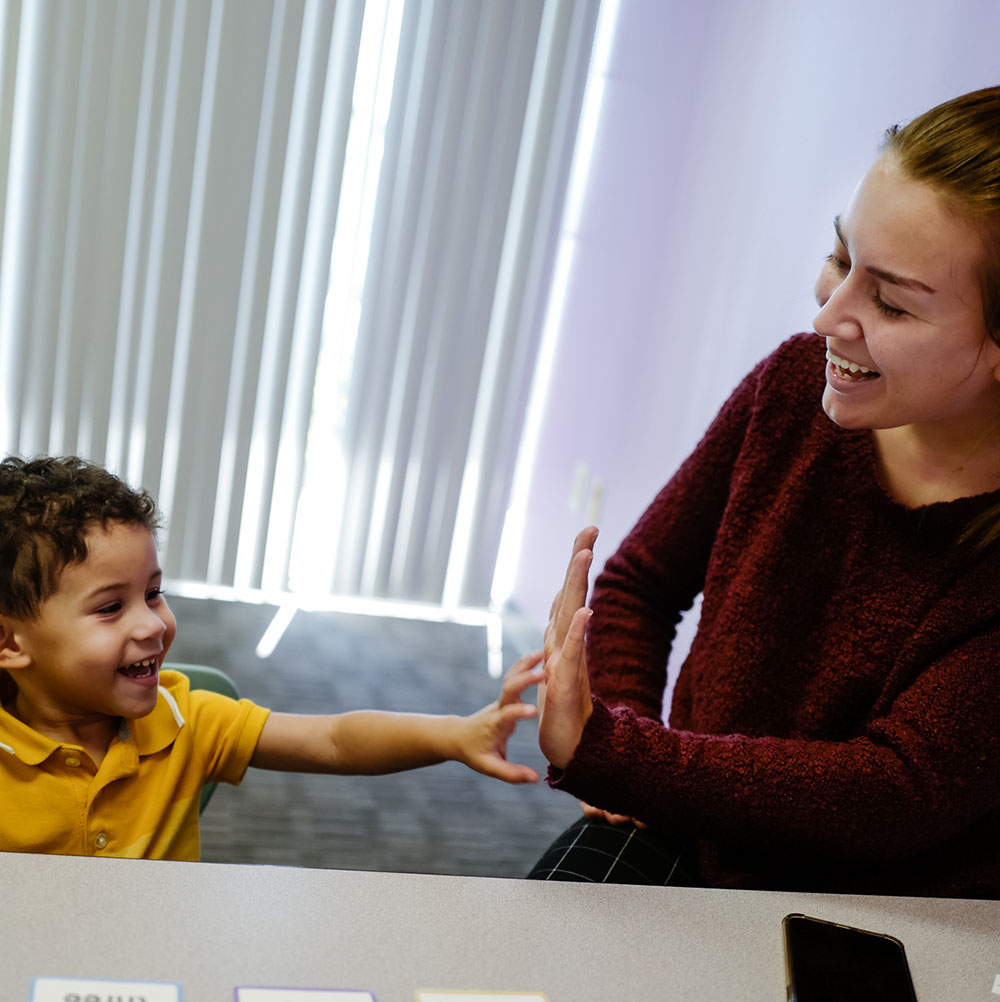
Key Components of Discrete Trial Teaching (DTT)
What is DTT? Let’s explore some of its aspects to understand how it works.
Discrete Trial
Discrete Trial Training in Applied Behavior Analysis focuses on teaching a new skill (like handwashing). Your child’s therapist, also known as a Registered Behavior Technician (RBT), may teach a whole skill or work on just one part of a skill at a time, a principle called task analysis. A discrete trial is simply a structured session of working on a skill or part of a skill. Each teaching session typically includes three parts:
Instruction
Your child’s RBT provides instruction on what skill to practice. For example, if the discrete trial focuses on applying soap as part of washing their hands, your child’s RBT may demonstrate this task and walk them through it. The therapist may provide a prompt–or reminder–if the task is one your child has worked on previously.
Response
The response stage is simply how a child responds to the prompt or instruction. Did they successfully push the lever on the soap dispenser? Did they place a hand underneath to catch the soap? Your child’s RBT assesses whether your child has understood their instruction and is making progress in learning a skill.
Reinforcement
Reinforcement is an important part of discrete trial training. When your child successfully completes a skill or makes a positive attempt at the skill, positive reinforcement can provide the encouragement they need to master that skill. Reinforcement can be verbal praise or an opportunity to play a favorite game.
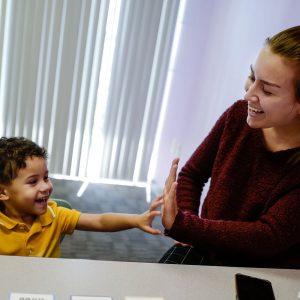
The Process of Discrete Trial Teaching
DTT is one part of the multi-faceted ABA therapy experience you can expect at each of our InBloom learning centers. Like all of our therapy methods, DTT is planned carefully to help your child reach their individual goals.
Your child’s Board Certified Behavior Analyst (BCBA) will meet with you and your child and create a therapy plan tailor-made to your child’s unique strengths and needs. The Registered Behavior Technician (RBT) will work directly with your child, implementing personalized plans during their daily sessions. This plan will include learning goals and daily living skills to help your child gain independence and prepare for kindergarten!
Discrete Trial Training is one method that will help your child master new skills. It is often used to teach simpler or hands-on skills. Your child’s RBT will work with them 1-on-1 during a discrete trial session as they work on a specific skill together.
Our team of certified therapists is flexible and adaptable. Based on your child’s progress, the therapist’s observations, and your feedback, your child’s therapist will adjust and plan discrete trial sessions to best meet your child’s learning needs.
Benefits of Discrete Trial Teaching
Discrete Trial Teaching is an effective, proven teaching method that can enhance your child’s ABA therapy experience and help them bloom in new and exciting ways!
Skill Acquisition
Discrete Trial Training in ABA therapy is an effective method of helping your kiddo to learn and ultimately master a new skill. The structured repetition of DTT, combined with positive reinforcement, can help children with autism successfully learn new skills, including self-help, communication, academic, and social skills. This leads to success in many areas, from social interactions to school readiness.
Behavior Improvement
Positive behaviors are an essential part of successful socialization and a building block for many life skills. Through positive reinforcement, DTT can help your child learn and master positive behaviors that can carry over into many areas of life. For example, DTT could help a child learn how to ask for help with a task or negotiate sharing toys with a peer.
Enhanced Learning
Skills are often taught sequentially in Discrete Trial Training. As your child gradually masters each step of a skill, they can celebrate their success along the way. Kiddos become more excited about learning and motivated to master new skills.
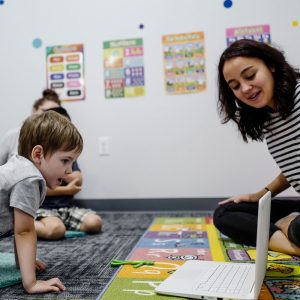
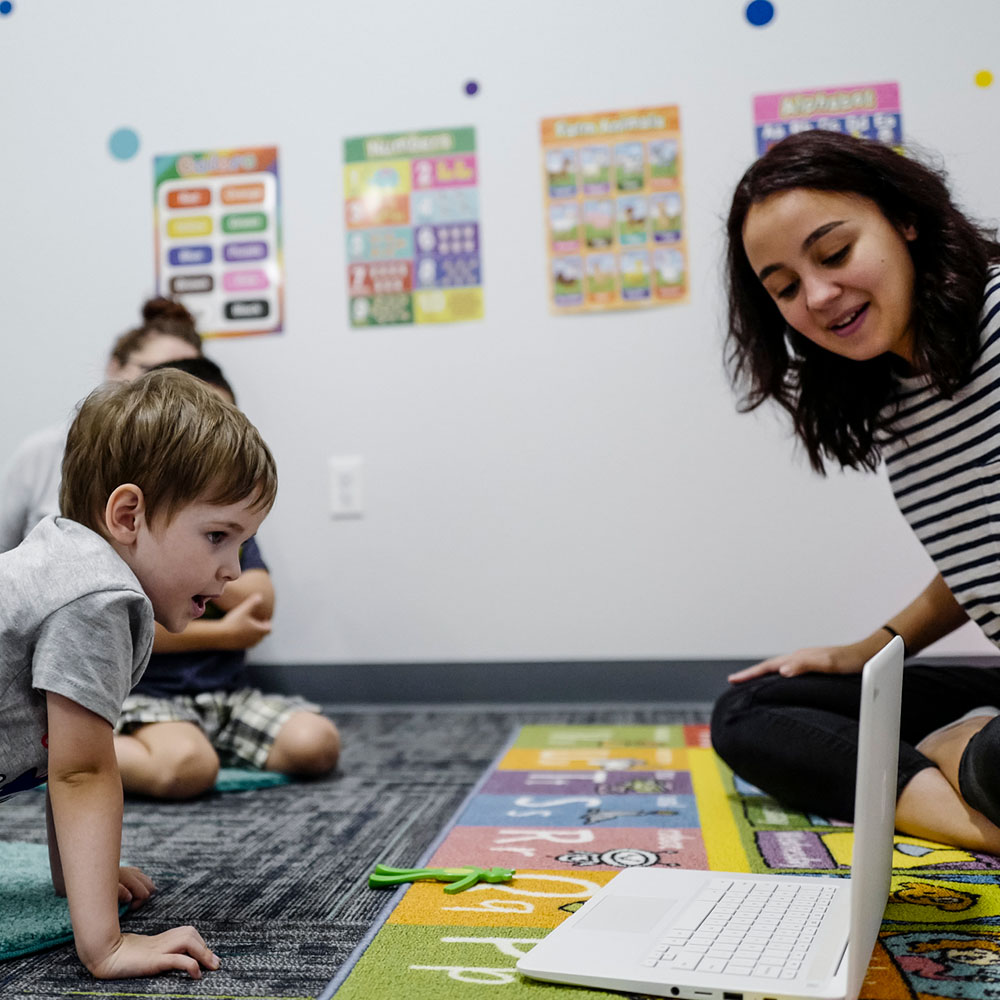
Real-World Examples of Discrete Trial Training
DTT can be used to teach children a wide variety of practical, real-life skills.
Discrete Trial Teaching works well for hands-on skills like brushing teeth, washing hands, identifying colors, cleaning up toys, putting on shoes, putting on a jacket, and many more. DTT can also help a child learn vital social skills, such as waiting in line, asking for help, sharing a toy, asking a question, or introducing oneself. Academic skills can be taught using DTT, helping kiddos grasp ideas and concepts and preparing them for school and other scenarios.
Let InBloom Autism Services Help – Get Started Today!
We recognize that everyone is at a different point in their journey with an Autism diagnosis. So, we specialize in helping you start on a path to support, guidance, and growth at an autism therapy center near you. Our InBloom Care Team is here for you and your family. We are happy to answer any questions you may have.


